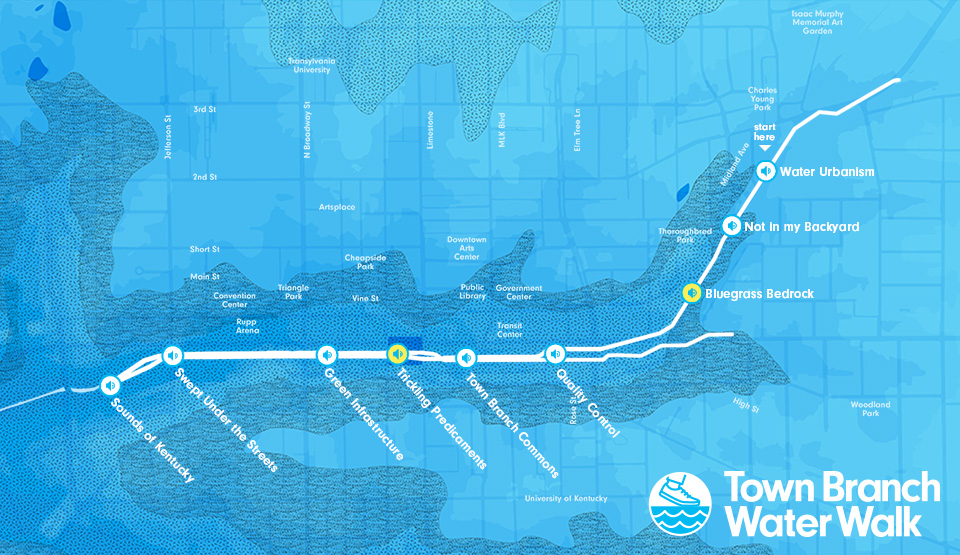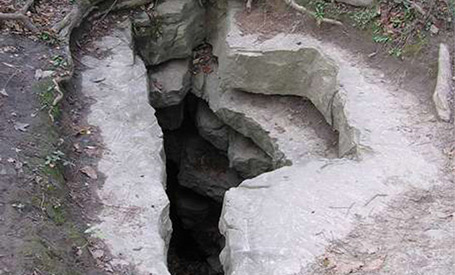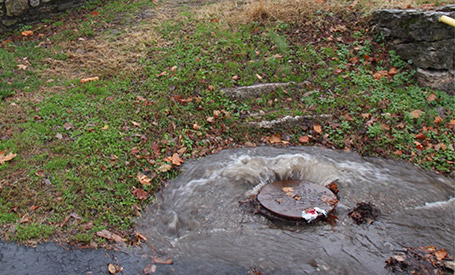Karst Geology
Karst is what gives Kentucky bourbon its distinctive taste and is rumored to make Kentucky horses faster than most! Karst geology is found throughout the Kentucky bluegrass region and is unlike other waterways because its water moves above and below the Earth’s surface, rarely in a straight line. Because of this, karst is characterized by dramatic landscape features, like boils, caverns, falls, and blue holes. These features are formed beneath the Earth’s surface through the erosion of limestone bedrock by underground water systems. These podcasts explore karst landscapes and how what is underground can influence what happens above.
Terms
Karst: A landscape formed by the erosion of bedrock, characterized by sinkholes, caves, and underground drainage systems. Many of the surface features are due to underground processes of the weak acids of groundwater dissolving the rock and creating a varied topography.
Calcareous: Describes something that is mostly or partly made of calcium carbonate, a common chemical compound that is easily eroded by water. Things made of calcium carbonate include chalk, limestone (which makes up most of the bedrock in Kentucky), pearls and oyster shells.
Bedrock: The solid rock underneath loose soil and sediment
Groundwater: Water stored beneath the Earth’s surface in cracks and spaces of soil, sand and rock. It moves slowly through geologic formations called aquifers, which are underground lakes.
Erosion: Also known as weathering, erosion is the process of wearing away or breaking down rocks into smaller pieces by wind, water or other mechanical, chemical and organic weathering processes.
Sinkholes: A hole in the ground created by underground erosion. Sinkholes generally occur in areas with limestone bedrock, like Kentucky.
Stormwater: Runoff water that starts as precipitation in storm events or snow or ice melt. Stormwater flows over impervious surfaces, like paved streets, parking lots, and rooftops, and collects pollutants that negatively affect water quality.
Further Reading



